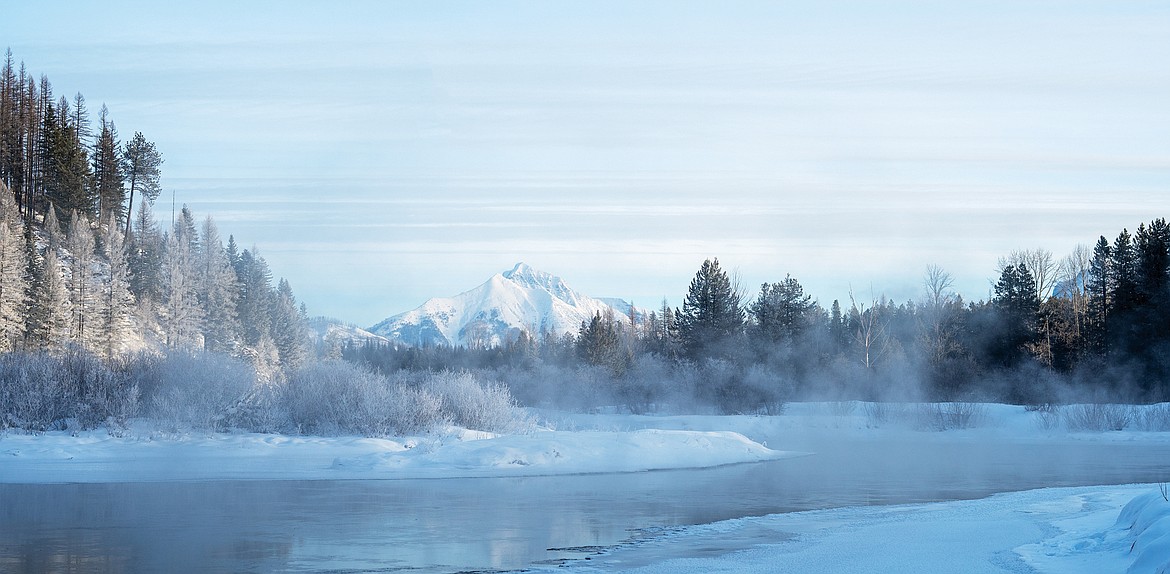Life at 20 below
There is something about being out in weather that is colder than 20 below that is both alarming and exhilarating.
You feel stuff like micro breezes, the sort that trees can make just by sighing and you realize that yes, your nose is attached to your face and so are your cheeks. When you have a big nose like mine, you feel it even more.
After about 5 minutes you can longer feel that big nose run and you no longer realize that the snot running out of it is freezing.
You probably look like hell, but then again, you don’t care.
Because the ice is groaning and the open water is steaming like a teakettle pouring a hot cup of tea.
You admire ducks more than usual, especially the buffleheads, a small duck that calls Glacier National Park home all year long. The buffleheads are redefining the word toughness, out there swimming and diving in the water which is literally turning to ice before your eyes.
If it wasn’t for gravity and a nearby spring, it would be ice.
The bufflehead pays this cold no mind. It is a small duck, as ducks go. You could fit one in a brown lunch bag. The other day you watched as a young bald eagle swooped down and tried to eat one.
The bufflehead’s first line of defense is to dive and dive quickly, as deep as possible. They can stay under water at least a couple of minutes, by my counting.
Eagles are good in the air, not so great in the water. After a couple of attempts, the bufflehead escapes, a bit ruffled, perhaps, but no worse for the wear. It continues about its business.
The eagle flies off, hungry.
The whole affair takes 30 seconds, maybe less.
Any water that isn’t moving is frozen. The beaver ponds and lodges are now all frozen over. Deer have taken to the ice, using it to get to brush they couldn’t get to before. You also see the tracks of a fox. One would think that eventually you might get a glimpse of him, but he’s a secretive creature and you suspect he does most of his hunting at night.
The smart eagles don’t stay around at all. You see them flying south out of the park, cruising the highways looking for roadkills, following the ravens that can find an ailing carcass even before it’s dead.
In 20 below weather the walks are shorter than usual and you get hungry faster. Still, once the sun is above the mountains it warms to 5 below and the chickadees start singing that sing-song note that reminds you of one thing and one thing only: Spring.
It’s not, you remind yourself, all that far away.


